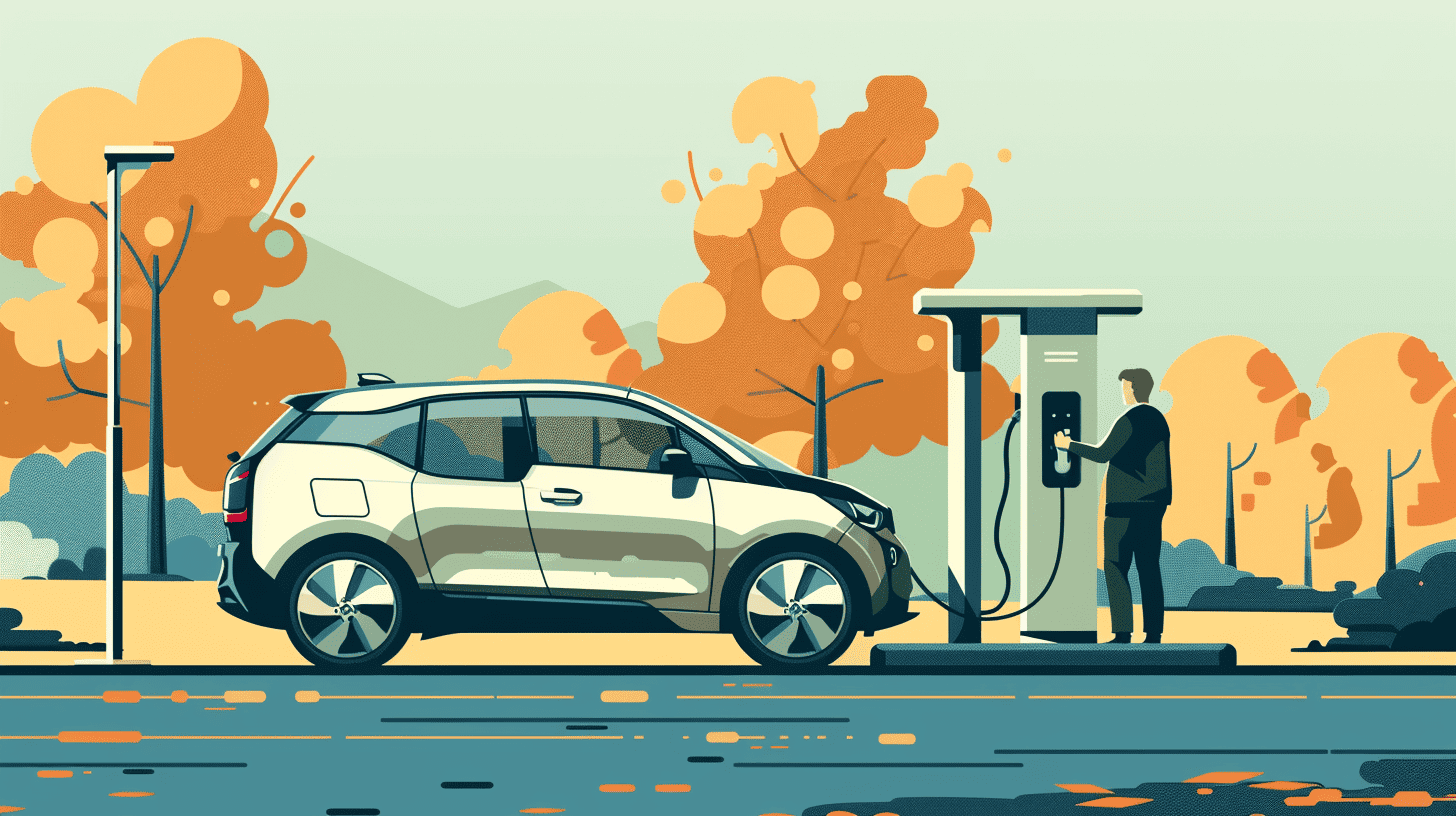
Yesterday a study by Auke was the topic of conversation. Commissioned by the German Greens political party, he drew up a thorough analysis of electric mobility. The most important conclusions? Electric cars emit half as much CO2 as cars that run on petrol. Even when the electricity used to drive is not entirely green and if you factor in battery production. Auke also found out that the CO2 emissions released this way are even lower than we thought. Moreover, the batteries last longer than expected.
Yesterday started at 7:15 a. m. with a broadcast on Dutch Radio 1. After that, it was mayhem. Auke’s phone was red-hot all day long. The study was picked up at home in the Netherlands and abroad in Italy, Sweden, Germany, and the Netherlands. Auke posted it all on Twitter. And on Linkedin Volkswagen CEO Herbert Diess shared the Technical University of Eindhoven (TU/e) study and commented that further electrification will further contribute to reaching the climate targets.
“Pretty cool, eh,?” says Auke when he finally found a quiet moment to answer his phone. “To be honest, I never thought this would get so much attention. Because anyone who has followed me a bit knows that I’ve been saying for a long time already that this is part of a trend that started some time ago. But it’s still great to see that these developments – scaling up battery production, a greener energy mix, and more efficient EV motors – are happening so fast. But to me – and other experts in the field – it comes as no surprise.”
Recognition from companies in the fossil fuels industry
For Auke, the fact that one of the top executives of Volkswagen, the largest car manufacturer in Europe, is praising his research, is deeply symbolic. More than thirteen years ago he started to ‘worry’ about this subject and ‘being taken seriously,’ and even wrote a book on electric mobility. “Once I delved into this, I realized that the internal combustion engine has had its day. At that time I was still – let’s say – an ‘enthusiastic scientist’ for the outside world, a bit of a nutcase. But I was, and am strong-willed enough, and understand that I was, and still am, on the right track. You choose your own reference points, specks on the horizon. The fact that major fossil fuels companies acknowledge you and say ‘we think so too‘ is really one of those milestones.”
Read our IO article about the German car lobby here
Auke laughs when asked to explain what’s new about this study. “That’s what every journalist asks. But I find that difficult to answer. It’s part of a gradual trend that has been going on for quite some time now. It makes sense to me, because I keep track of these kinds of developments. Tomorrow, that gradual change will be just as newsworthy to me as it is today. It’s different in the media. A falling tree gets more attention than a growing forest. Where I’m as I am actually dealing with the growth of the forest, as in, the big picture. Journalists then ask what that entails. As far as I am concerned, it all starts with an overview of the whole situation.”
Auke starts talking enthusiastically about systems thinking and circles and lines on paper that are all interconnected. “It’s a self-evolving system where all kinds of small things influence each other. From there, I start thinking about what the energy transition looks like. What does it signify if we store CO2 underground? Phasing out coal? Is energy becoming more and more sustainable? It’s all connected. That big picture gives me something to hold on to. From that point on, I’m going to figure it out more concretely and precisely. Zooming in, as it were, on a certain line in the system.”
More and more sustainable
By following these trends, Auke knows that battery production is becoming increasingly cleaner. ” In order to make a battery, you need less and less material for the same capacity nowadays. We’re also scaling up factories, so they waste less energy. What’s more, our electricity is also becoming greener. In that case, you already know which direction things are going in then, right?”
There are several reasons why research always comes up with outdated figures, according to Auke: “Scientific research takes a lot of time, it’s a slow process. Generally speaking, it’s not so bad if you’re working with outdated data. However, everything is changing so quickly in this area. Look at how much more efficient solar panels have become, for example. In such cases working with old data becomes a problem. And apart from that, some people also don’t want things to go so fast; I’m not calling it a conspiracy, but for certain sectors fast change is not in their best interest.”
The media’s role
Finally, the media also play a role, Auke believes. “They can’t really cope well with trends. If a scientist says A and that is acknowledged, it stops being news. They immediately go looking for someone to contradict it. That way you don’t get anywhere. You just keep going back and forth.”
What is Auke hoping to achieve with this study? “Every time these kinds of figures come out, it becomes a little more difficult for people who claim the opposite.” Laughing: “Well, it does help if you are right in the first place.” But for him, it’s not just about being proved right: “The best thing would be if this kind of analysis helps develop structural knowledge about the energy system. It would be a waste to only pump money into sales incentives for EV vehicles. Instead, also spend money to find out what is needed when everything will actually be fully electric. That’s even more important.”
Read other IO Electric Auke columns here.






